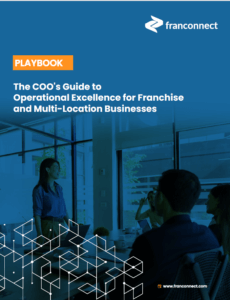As with many business challenges, the pandemic continues to provide valuable insights that can help franchisors strengthen and improve operations — not only to drive more revenue today, but to protect themselves against future disruptions.
In the wake of COVID-19, businesses had to adapt in real-time, change their models quickly, and take risks to stay above water amidst so much uncertainty. It’s unclear as to what we really learned in the past 16 months, and how we can take these learnings with us and adjust accordingly moving forward. Based on conversations with dozens of customers, we’ve identified four “must-do” actions for franchisors, regardless of size or industry.
1. Build a Staffing Pipeline for Future Hiring Needs
Whether franchises experienced a boom or a bust during the pandemic, many are now facing the challenge of insufficient staffing: 58% report a moderate impact and 18% have had to reduce hours or service because they cannot hire enough employees.
Some have become so desperate that they’re paying people just to submit applications.
The best employees, of course, are the ones you already have. This is the time to mitigate the potential for turnover by keeping your teams happy. These employees are also your best source of referrals: They know the job and won’t want to risk their own standing by recommending someone who isn’t up to par. Often, employees who refer a successful hire receive a bonus after the new hire hits 90 days of continuous employment.
Brands are also rethinking their appeal to prospects, particularly for entry-level positions. Draws could include childcare, college tuition or signing bonuses.
Lesson learned: Even if you don’t need applicants today, build a strong bench in case demand goes up or unexpected turnover hits.
2. Take Advantage of Virtual and In-Person Discovery Days
Every franchise handles them differently, but there comes a point in the sales process when the prospect and the franchise executives meet to get acquainted. You may call these “discovery days”, “meet-the-team days” or “decision days”, but they’re an important touch point.
When the pandemic forced these meetings to go virtual, many people discovered that this allowed them to meet more frequently than in the past. Virtual meetings are also less costly and time-intensive for prospects. Even though many franchisors have resumed in-person discovery days, there will continue to be room for both approaches.
Lesson learned: Discovery days are likely to stay hybrid. Leverage the approach that works best for your team, your prospects, and your business.
3. Use Virtual Assessments and QA Software to Drive Better Coaching
One surprise of the pandemic was that, thanks to virtual evaluations, brands actually performed more evaluations in 2020: an average of 162 onsite and virtual audits, up from 148 in 2019. At the same time, franchisors are increasing their spans of control. As it becomes difficult to visit every site in person, franchise business consultants (FBCs) are relying on distance technologies to provide operations support.
To facilitate this expanded oversight, many brands are enhancing their training and assessment tools. Learning management systems, gamifications and simulations, and custom-designed courses all reinforce desired skills and best practices. FBCs are also turning to video reporting, with franchisees using their cell phones to show themselves demonstrating the execution of a standard or show that menu boards and marketing materials are correct.
Quality assurance software is another critical source of data, helping franchisors measure performance by having franchisees self-report their execution against their operational playbooks.
Lesson Learned: A hybrid approach to assessments allows for more frequent touch points that facilitate collaboration and coaching. Technology tools support FBCs as they provide remote oversight to larger spans of control.
4. Use Operations Tools to Develop Actionable, Data-Driven Insights
Brands have also increased their use of operations technology, particularly dashboards that serve as real-time command centers to monitor critical performance indicators, customer accounts and other information. Now more than ever, franchisors need visibility into their operations, especially when so many visits are virtual.
We’ve developed operational tools that help franchisors analyze dashboard results, helping them generate auto-populated playbooks, which can then be assigned to franchisees. These might address a downturn in customer accounts, a need for realignment with best practices or other issues.
Playbooks also address the fact no FBC is an expert at every single aspect of the business. Playbooks reflect the expertise of multiple team members, together with institutional knowledge about the business, to enhance FBCs’ operational oversight.
Lesson Learned: The best franchisors will use technology to derive insights and analysis and incorporate playbooks as a powerful coaching tool.
Helping franchisors navigate today’s complex environment
The past 16 months have been immensely challenging, but franchisors have proven themselves as remarkably resilient. Moving forward, we hope these lessons learned can help you prepare for an unpredictable future.
If you want more insight into the current state of Franchise Operations then view our webinar, “The Role of the Franchise Operations Team Today”.
You’ll hear and see how Franchise Operations teams can achieve:
- Operational excellence via consistency and quality of service, brand compliance and field execution;
- Improved unit level performance by centralizing and analyzing operational data and deploying playbooks for remediation and improvement;
- Staff enablement and support through franchisee communication, engagement, onboarding and onsite staff training support;
- Legal and process compliance using data management and collaboration with legal to ensure a single source of truth.
Use the takeaways from this webinar as a benchmark to make sure you have the right priorities for your franchise operations in this rapidly-changing environment.





 Ian Walsh
Ian Walsh








